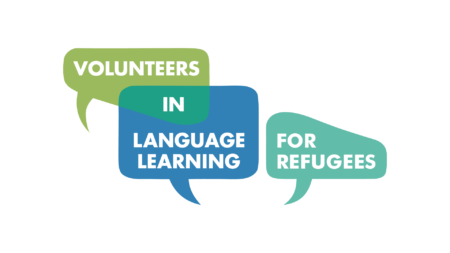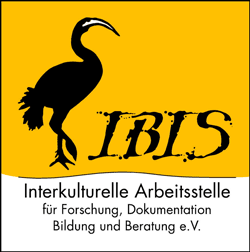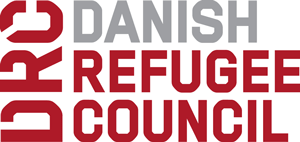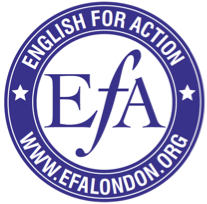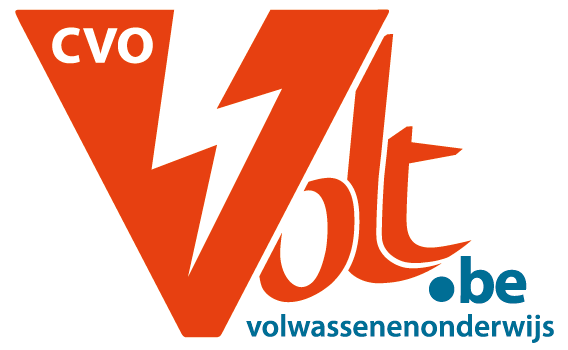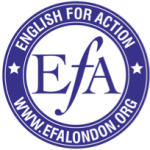Project Partners
The five Organisations involved in this Project
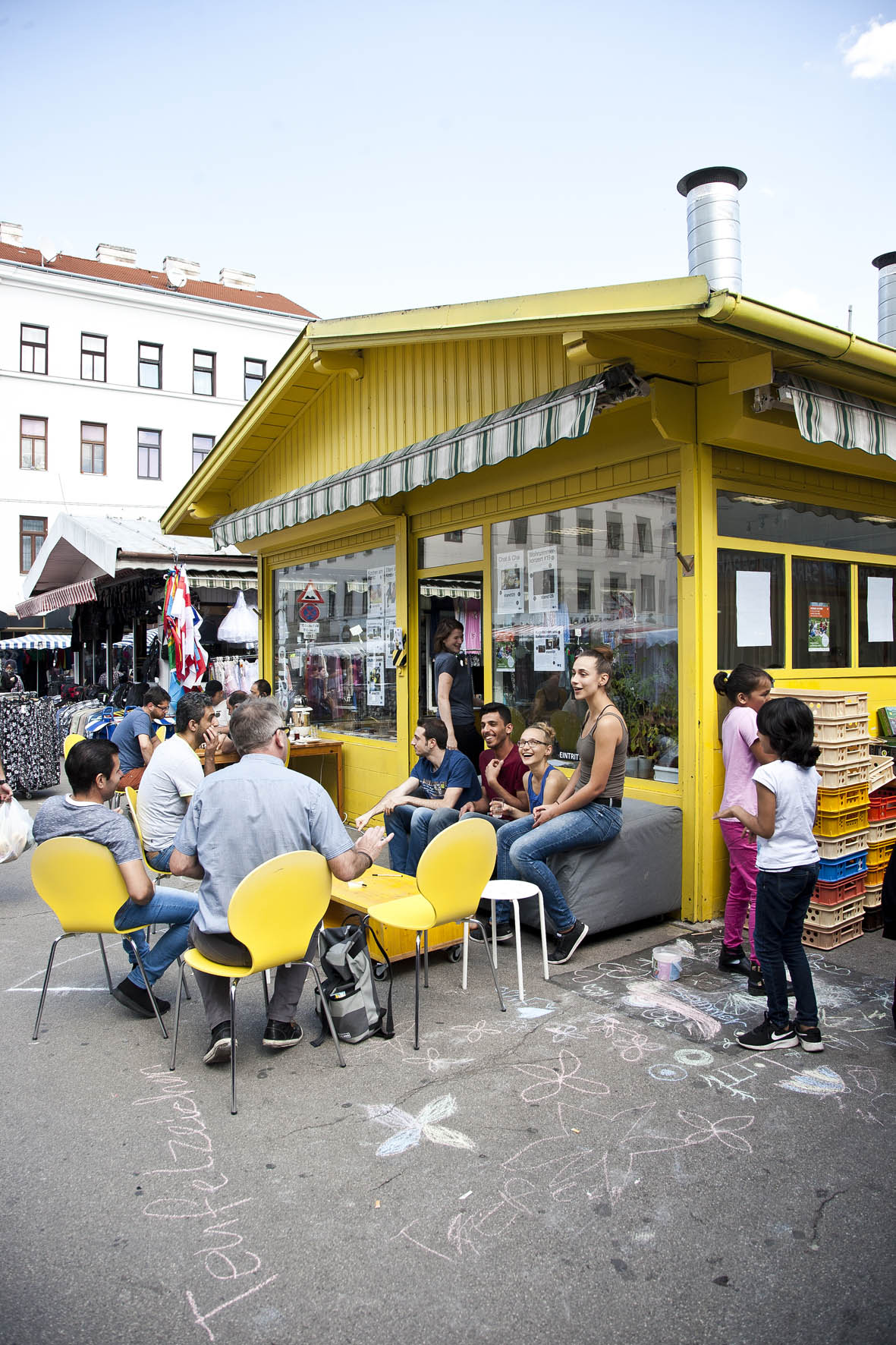
The “Caritas der Erzdiözese Wien” is a not-for-profit organisation that aims to relieve distress through the provision of social services. Caritas provides a wide range of services including vocational training, retirement care, facilities for disabled people, support for those experiencing homelessness, foreign aid and refugee and migrant relief. More than 4000 volunteers support the work of Caritas Vienna.
Since 2007 Caritas Wien has also run Community Arts projects. Stand 129, who has initiated and coordinated this Strategic Partnership (see picture, left) is such a Community Art project. The small venue is based in a market in Vienna’s 10th distinct that aims to reach people across a variety of religious, political and ethnic backgrounds.
Volunteer-based conversation and learning groups have been conducted in Stand 129 since 2015. The starting point was the need and request of refugee learners, and an overwhelming readiness from the civil society to volunteer in this unique situation in 2015. Stand 129 has continued this work. The unique thing about Stand 129 is, that language learning is not the core business, and it offers many opportunities for the learners to get in contact with other people, though events like concerts, theatre workshops, a choir, cooking and movie nights.
Other units and sections in Caritas which are more focussed on language learning conducted by professional teachers, collaborate with volunteers in their work since decades.
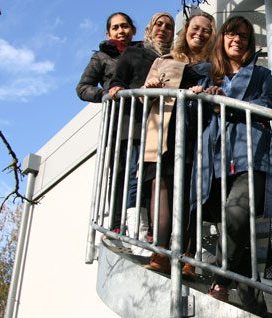
CVO VOLT is an Adult Education Centre of the Flemish community Education (GO!), one of the three main education providers in Flanders, Belgium.
CVO VOLT has campuses in Leuven, Tienen Landen (East-Brabant) and organizes evening and daytime modular language courses (Dutch as a second or other language), as well as ICT, graphic design, accountancy, technical courses and Second Chance Education.
CVO Volt has 9000 learners a year. One third are migrants, refugees or foreign students learning Dutch. They offer Dutch courses going from A1 to B2 in fast, standard or slow courses. These are two, three or four times a week, according to the needs of the learners. CVO Volt has expertise in blended learning and student councelling.
CVO Volt was interested in the ViLL project because they wanted to increase the number of volunteers in their organisation, stimulate cooperation between teachers and volunteers and develop expertise in training volunteers.
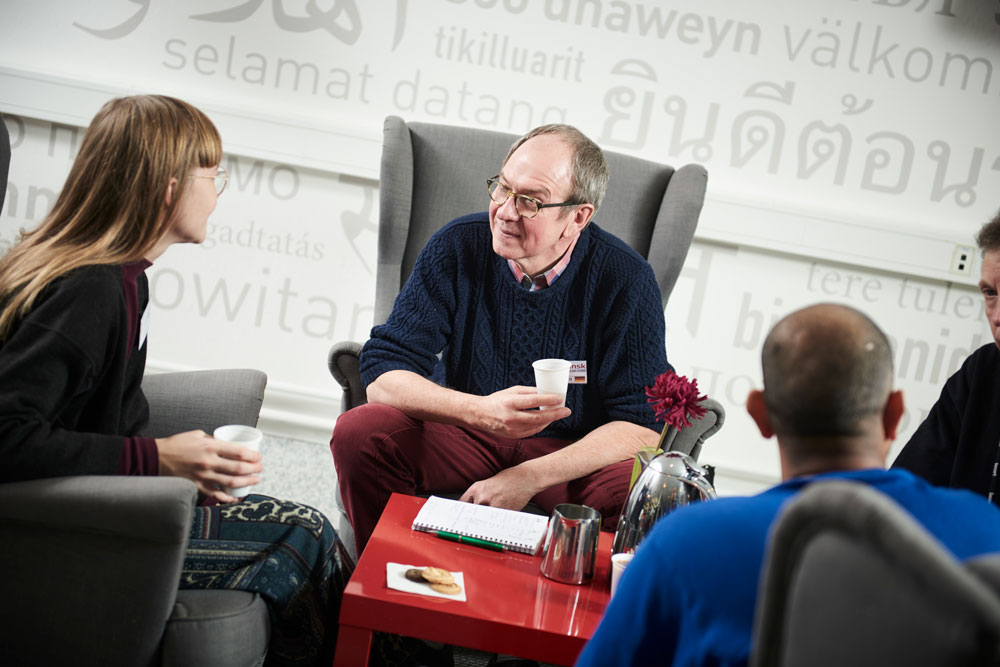
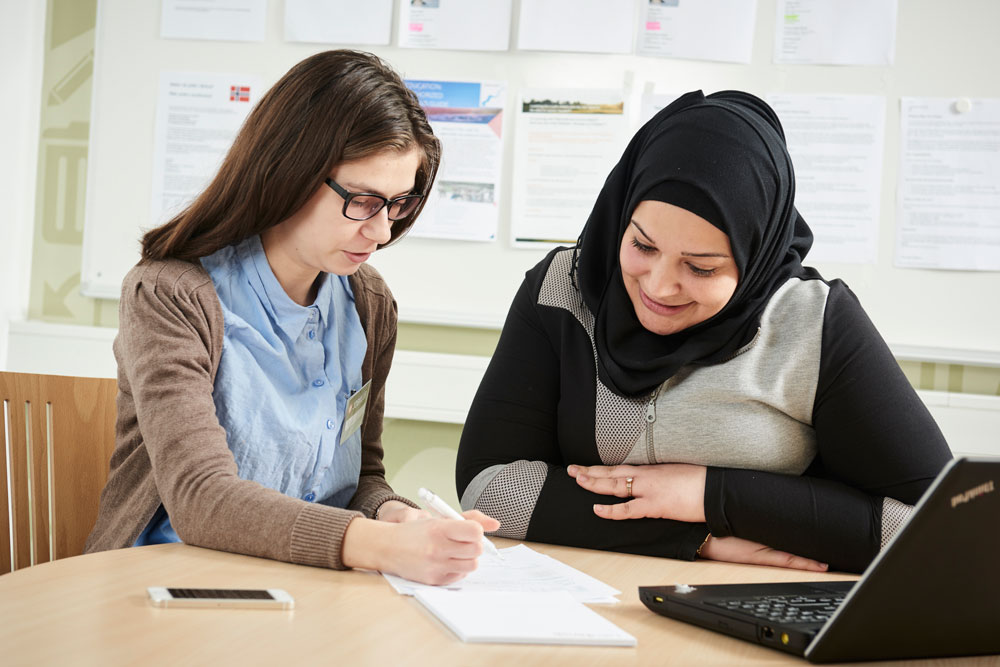
The Danish Refugee Council is a private humanitarian organisation that covers all aspects of refugee issues. It's work is based on humanitarian principles and human rights. Its main aim is to assist and protect refugees and to empower them towards a better future. The DRC strives to provide sustainable solutions for refugees, displaced people, and host communities coupled with the objective of enabling those who they assist to live dignified lives.
The DRC's mission is to help refugees and displaced people, to protect their rights and strengthen their opportunities for a better future. Its vision is a dignified life for all displaced.
Lærdansk (the organisation involved in this project) is a part of the Danish Refugee Council and currently consists of 15 language centres. It teaches approximately 15,000 course participants and employ more than 450 members of staff. Employees are included in professional and social communities across language centres and with our other professional and voluntarily integration activities within the Danish Refugee Council.
As a modern educational institution, Lærdansk offers tuition to adult migrants. It caters to a variety of needs in a busy daily schedule. The lessons typically take place either in a classroom at one of Lærdansk's language centres, online or at a company.
Lærdansk was participating in "Improving the Involvement of Volunteers in Language Learning for Refugees” to encourage further involvement of volunteers in language learning – both within Lærdansk specifically and in Denmark in general.
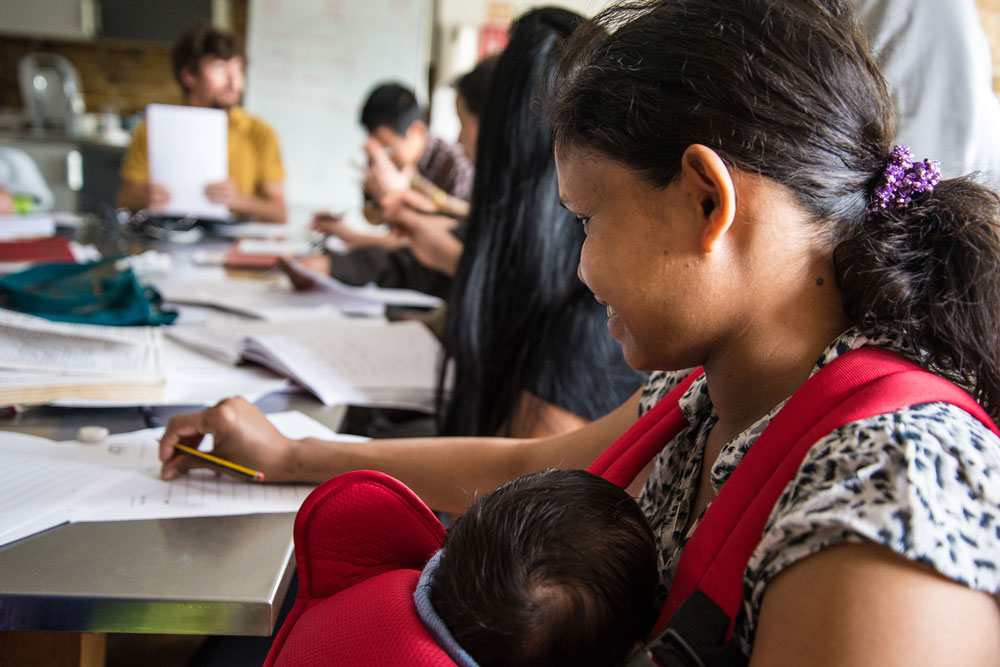
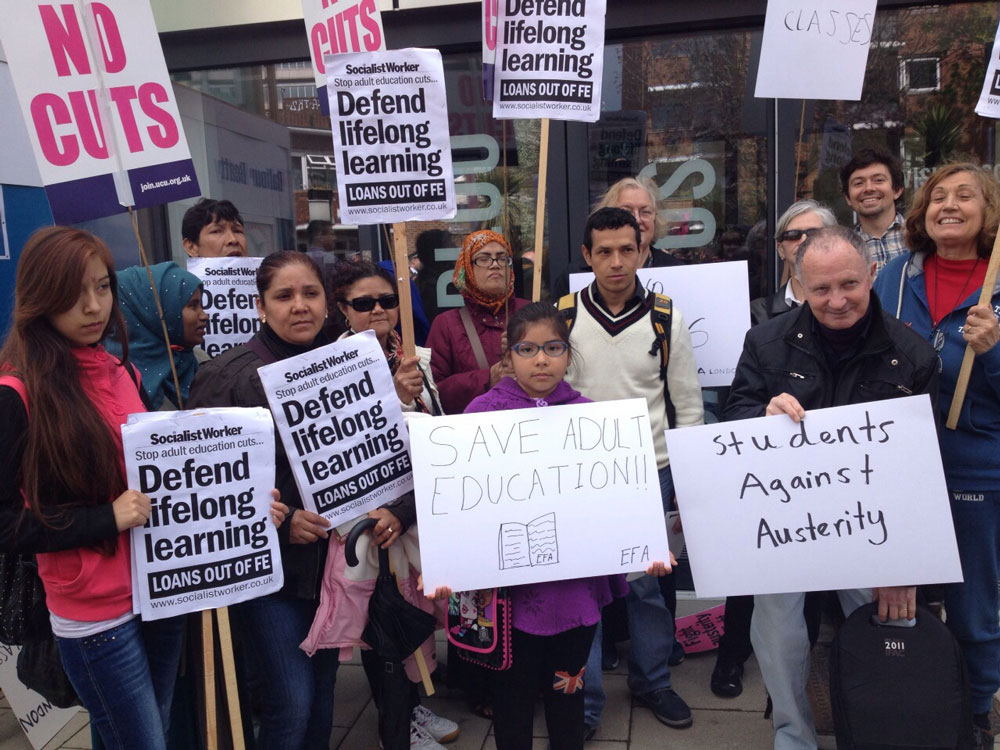
EFA London provides English for Speakers of Other Languages (ESOL) courses for migrant communities across London. We also train teachers across the UK in participatory approaches to ESOL teaching and are involved in research in this area.
We currently run 24 classes per week in South and East London, reaching around five hundred adult learners per year. Our aim is to reach people who may be excluded from mainstream ESOL courses. As such, are classes are free and delivered in accessible community locations.
We believe that ESOL classes, with the correct focus, can enable migrants to access the social, economic and political benefits that would be out of reach without language training and support.
We use a participatory approach to teaching that is influenced by radical Brazilian educator Paulo Friere. You can read more about participatoy ESOL here.
We aim to enable students to build mutually supportive relationships as well as the confidence and skills to make change. Our classes are warm, inclusive spaces which have a strong sense of community in their own right. Space in made in class for critical discussion, including conversations about the difficulties students may encounter outside the classrooms. Many of our students face issues around workplace exploitation, housing and discrimination as well as more practical challenges associated with navigating British bureaucracy. We support students to explore responses to these issues, including collective action to address social injustice. Most recently, our students have been involved in advocating for ESOL provision at City Hall (the office of the Mayor of London).
We were involved in ‘Volunteers in Language Learning for Refugees’ to improve our practice and the practice of other language teachers.
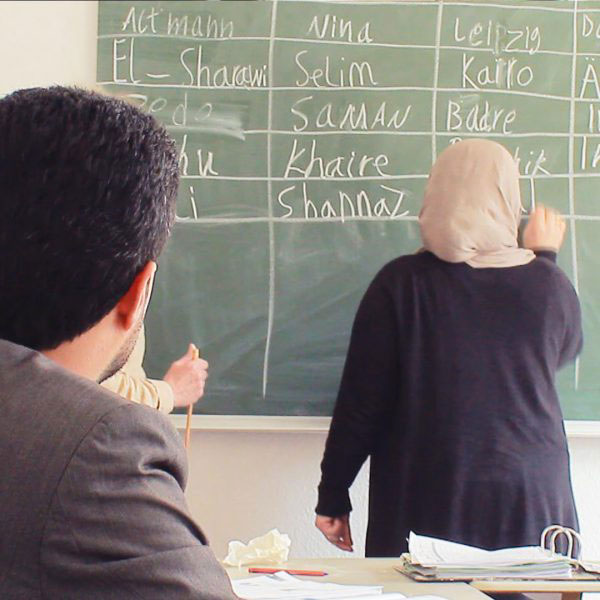
The IBIS Association - Intercultural Workplace for Research, Documentation, Education and Consulting e. V. (IBIS e. V.) - is based in Oldenburg, Germany and offers support and free services to migrants and refugees. Registered in 1994, IBIS e. V has advocated for over 20 years for the “full view” of integration. IBIS understands integration as the respectful and equal coexistence of all people with their individual and cultural differences and similarities. in Oldenburg has stood for over 20 years for the "full view" of integration.
IBIS focuses on providing free advice and support on the asylum process, health care, finding accommodation and facing with personal problems. They also support clients to deal with authorities and lawyers.
In addition, IBIS e. V. also offers qualified psychosocial counselling in which traumatised refugees receive help in a range of languages. In addition to trauma therapy, the focus is also on resource-strengthening methods, labour market-related counselling and the concept of life perspectives.
Language is an essential factor for social participation. Therefore, IBIS e. V. offers high quality, intensive integration and German language courses for all language levels.
The aim of the anti-discrimination work at IBIS e. V. is to promote equal coexistence, formulate political demands and support people who have experienced discrimination. On the basis of the General Equal Treatment Act (AGG), people who have experienced individual, institutional or structural discrimination can seek advice.
